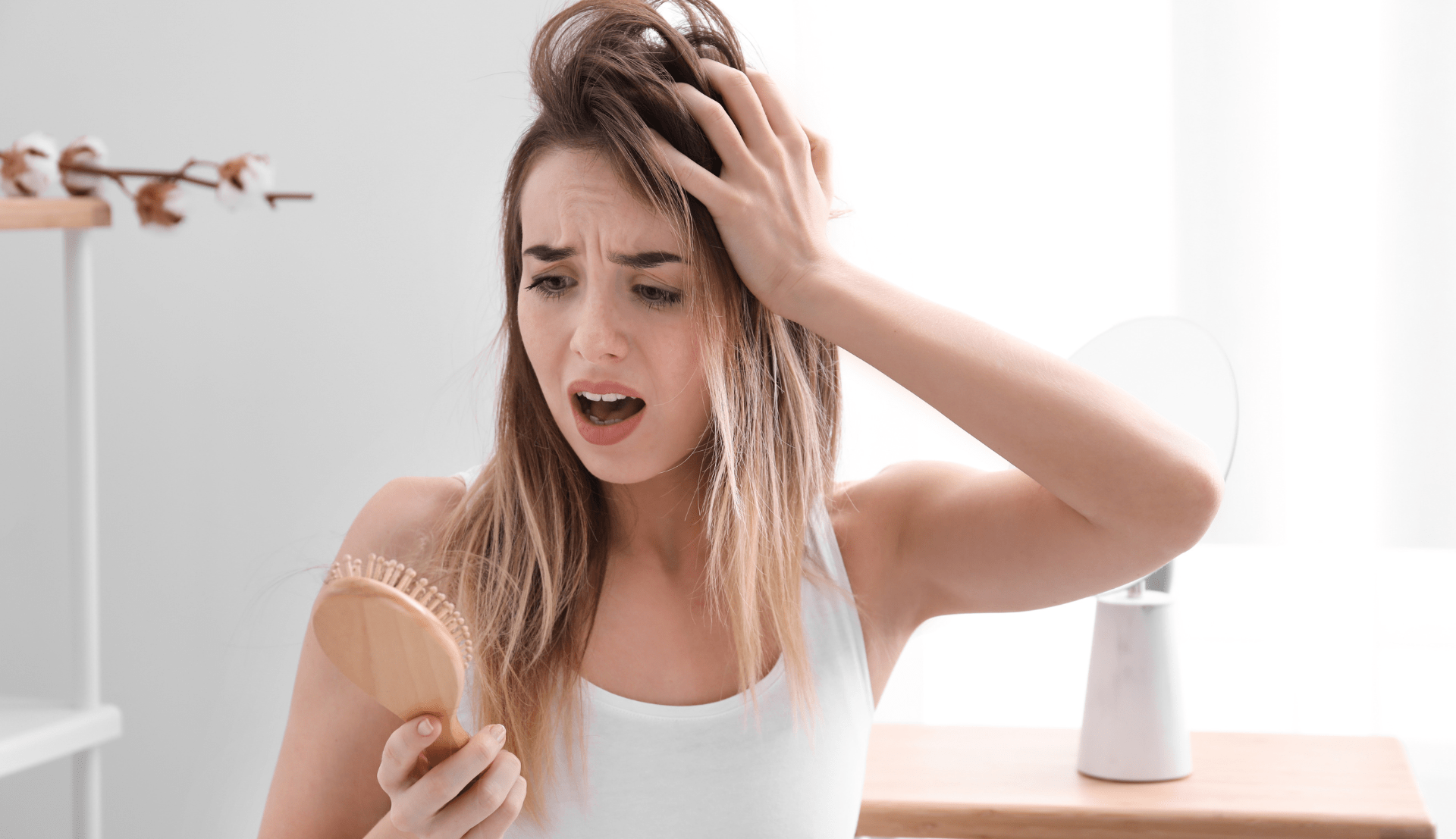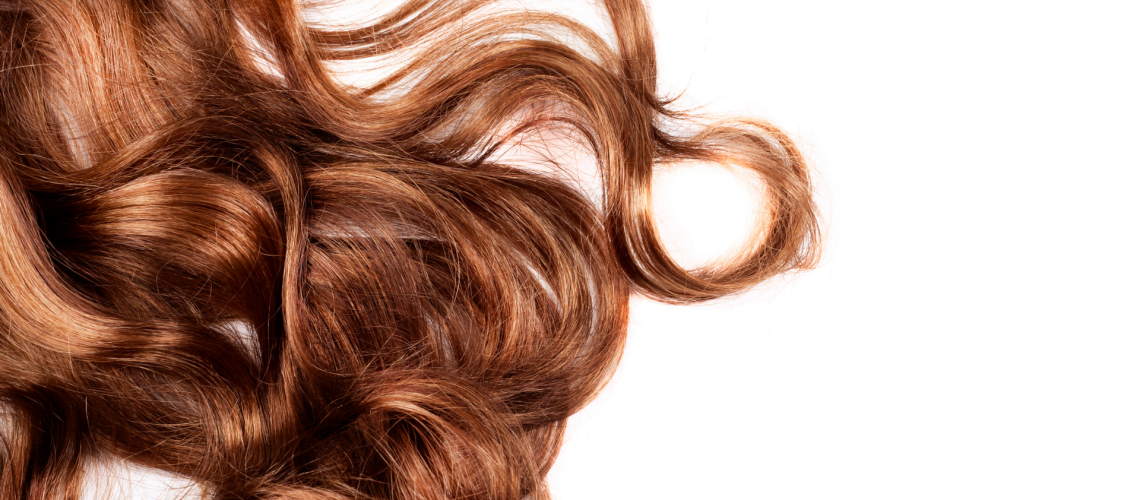For many people, thick, healthy hair is central to their appearance and confidence. Thinning or falling out can be a pain. fortunately, there are some things you can do to stop hair loss and promote hair growth. also you can read how to make hair thicker?
The first-rate manner to sluggish or forestall hair loss is to deal with the underlying reason, which can be brief hair loss (telogen effluvium). It may be because of childbirth, surgery, or different principal stressors. Hair typically grows returned after the occasion is over. In different instances the reason is extra complicated.
It is normal to lose about 100 hairs per day due to the normal growth cycle. However, if you are losing more, see your doctor to rule out underlying medical conditions and discuss your options.
How to stop hair loss and improve hair health
To improve overall hair health and potentially prevent hair loss, you can follow some hair hygiene tips.
Avoid hairstyles that pull hair
Hair is flexible, but research shows that it can only be stretched out before it is completely damaged.Hairstyles such as cornrows, tight braids and ponytails can pull hair away from the scalp and cause it to break down over time. It also loosens the bond between hair and scalp.

Avoid hot hair styling tools
Styling your hair with heat dehydrates your hair follicles and makes them more susceptible to damage. Hair dryers, straighteners, and curling irons can damage your hair over time by expanding the moisture in the hair shaft.
Do not chemically treat or bleach your hair
Chemical treatment of hair by methods such as bleaching damages hair by breaking down a protein molecule called keratin. Limit the use of dyes, highlights, peroxide treatments, and perms if hair loss is a concern.
Use a mild shampoo suitable for your hair
The purpose of shampoo is to wash away dirt and excess oil from your hair. Excessive shampooing can damage your hair. Sulfates and other ingredients have been associated with frizz, dry scalp, and brittle hair.
There is no evidence that any particular ingredient in shampoo causes hair loss, but it may contribute to less-than-optimal hair health.

Use a soft natural fiber brush to stop hair loss
Using a soft, natural-fiber brush may help promote healthy oils in your hair. The keratin proteins in your hair stack up like shingles on the roof, so gently brushing in one direction from the top to the ends will smooth and condition the cuticle of your hair. Brush your hair daily. This will also prevent hair from clogging the shower drain.
Use Dermabiotecnica Hair Strengthener
Dermabiotecnica Hair Strengthener is a technique that uses injections of vitamins, enzymes, amino acids, minerals, and botanical extracts to rebuild the hair needed for the hair on the scalp.

How to prevent hair loss in women?
Hair loss in women usually occurs due to:
- Hereditary alopecia (male pattern baldness)
- thyroid disease
- aging
- Another hormonal status
If hair loss is progressing in weman till the age of 80, following treatments to prevent further hair loss is recommended.
Rogaine (minoxidil)
- Aldactone (spironolactone) or another antiandrogen
- Contraceptive
- iron supplements, especially if anemia or the menstrual cycle is causing hair loss
Women who have reached menopause may also consider hormone replacement therapy (HRT) to treat hair loss and other conditions.
Preventing hair loss in men
Men experience hair loss more than women. About 85% of men experience thinning hair by the age of 50. Hair loss in men is usually caused by genetic hair loss. If hair loss is a concern, your doctor may recommend one or more of the following treatments.
- Rogaine (minoxidil)
- Propecia or Proscar (Finasteride)
- Follicle unit transplantation (FUT), hair transplant involving underlying tissue
- Follicular unit extirpation (FUE), a hair transplant that contains only hair follicles without connective tissue
Hair transplants are expensive and not covered by insurance. Your insurance company also won’t cover minoxidil or finasteride to treat hair loss.

How to prevent postpartum hair loss?
Many women experience dehydration, fatigue, stress, and lower estrogen levels as their bodies adjust to life after pregnancy.These factors can lead to increased hair loss. Some hair loss is related to the stress and fatigue of childbirth. This condition is temporary and should disappear within a year after the abortion.
To minimize post-pregnancy hair loss, keep taking prenatal vitamins while breastfeeding, eat a healthy diet, and avoid tight hairstyles that pull hair away from the scalp. Dermatologists recommend using a mild shampoo and conditioner until the hair loss slows down and consulting with your stylist to make the hair loss less noticeable.
How to prevent hair loss during chemotherapy?
Chemotherapy works by attacking cancer cells in the body. As a side effect, chemotherapy kills the cells that grow hair. Hair loss usually begins within 2-4 weeks after treatment.
Some people prepare for this side effect by shaving their hair before starting treatment. Many people feel more comfortable with this choice. However, not everyone who undergoes chemotherapy loses all of their hair as a result.
You can also ask your doctor about cooling treatments for your scalp. These treatments, including scalp cooling caps, slow blood flow to the scalp during treatment. Cooling the scalp can help retain more hair, although it’s not completely effective.


